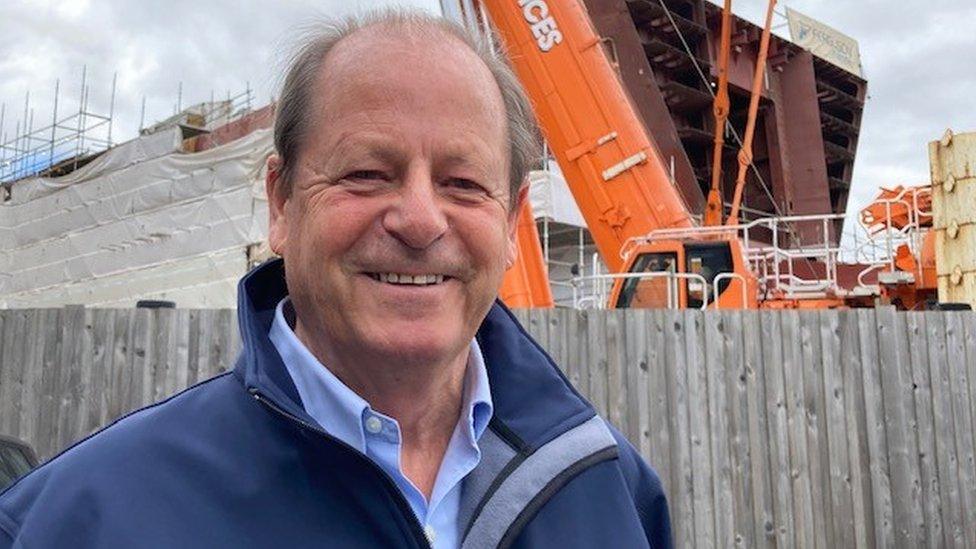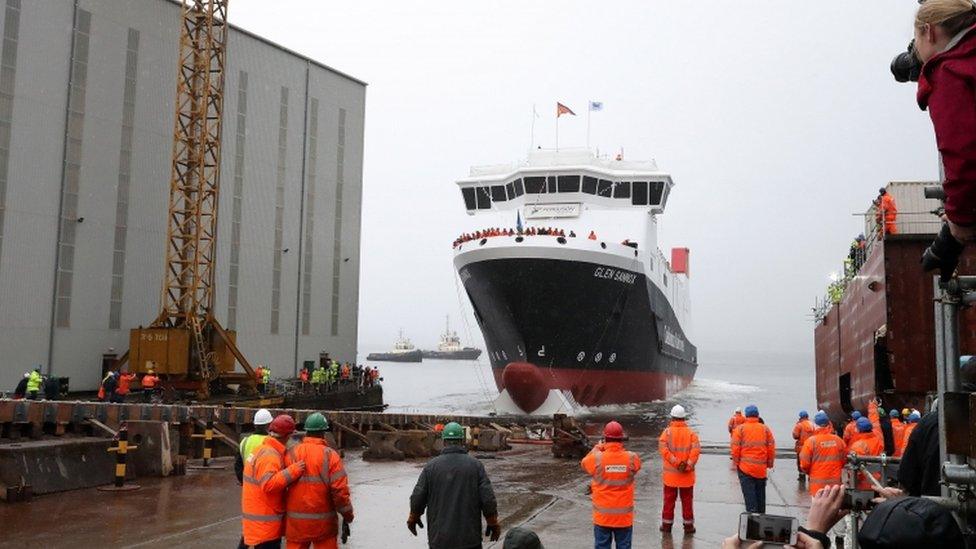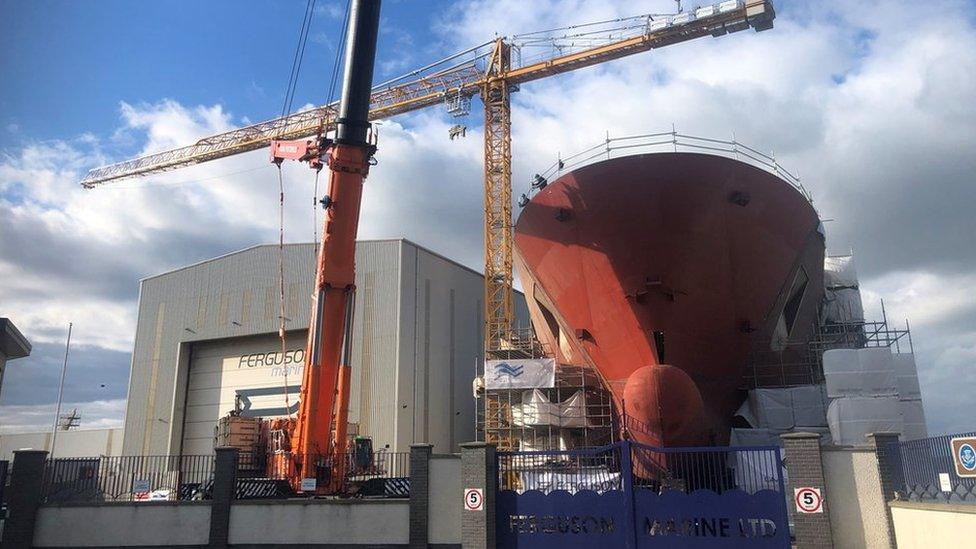Ferguson shipyard boss says ferry costs should not increase
- Published

Mr Tydeman said he was confident the Ferguson yard could restore its reputation after the CalMac ferry fiasco
The new boss of the troubled Ferguson shipyard has said he believes the two overdue and overbudget CalMac ferries will be finished next year at a total cost of £206m.
David Tydeman dismissed claims that the final cost of the two ships could be double that figure.
And he said he would be "very disappointed" if more money was needed.
Mr Tydeman took over as chief executive of the nationalised shipyard earlier this year.
The contract to build the two new ferries - the Glen Sannox and a second vessel known as Hull 802 - is already two-and-a-half times over its original budget and about five years late.
A former shipbuilding advisor to the Scottish government, Luke van Beek, claimed last month that the cost of completing the two ferries could be up to £400m and suggested it might be cheaper to scrap the project and start again.
Mr Tydeman told BBC Scotland that he "just can't understand where people make those numbers up from".
He said he had "certainly not" been given a blank cheque by the Scottish government to finish building the ships, and that it remained his intention to deliver both ships for £206m by the end of 2023.
That figure is on top of a £45m loan previously given to the shipyard by the government.

The Glen Sannox had originally been due to enter service on the Arran route in 2018 but is still not finished
Mr Tydeman said: "If we need more, that will be because there has been some surprises over the next 18 months or 21 months.
"I think we've bought most of the materials we need, I think we've got most of the labour we need.
"So if we run the programme properly we shouldn't need any more."
He was speaking on the day the bow of Hull 802 was lifted into position. He said this was happening a month ahead of the revised schedule.
Mr Tydeman was appointed chief executive after Tim Hair, who had been the yard's turnaround director, left earlier this year.

The bow of Hull 802 was lifted into place at the shipyard on Tuesday
Mr Hair was controversially paid up to £60,000 a month after being given the role by the Scottish government when it took over the shipyard in 2019.
Mr Tydeman said he had introduced changes which were having a positive impact on the yard's operations and increasing its efficiency.
These included changes to the way the ships are being built, which he said had been done "out of sequence" in the past.
More of the construction work for Hull 802 is being done on the berth rather than waiting until after it is afloat, which was the case for the Glen Sannox.
And a senior member of CMAL - which owns Scotland's ferries, ports and harbours - has been seconded onto the Ferguson management team to help the two work more closely.
Mr Tydeman said the Port Glasgow yard did not have any new orders but would bid for work in the future, including a programme of seven smaller CalMac vessels which he said could make "a very big difference" to the yard.
He said these new ferries were upgraded versions of ships that had already been built by Ferguson in the past.
He also said the yard was "nearly" fit for purpose and was "getting there" with implementing basic shipbuilding practice which a recent Audit Scotland report said was needed.